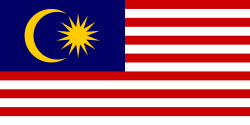 | |
| Country | |
|---|---|
| Code | MAS |
| Created | 1953 |
| Recognized | 1954 |
| Continental Association | OCA |
| Headquarters | Mezzanine Floor, Wisma OCM, Jalan Hang Jebat, 50150 Kuala Lumpur, Malaysia |
| President | Mohamad Norza Zakaria |
| Secretary General | Nazifuddin Najib |
| Website | www |
The Olympic Council of Malaysia (Malay : Majlis Olimpik Malaysia; IOC code: MAS), or commonly OCM or MOM, is the National Olympic Committee representing Malaysia. It is also the body responsible for Malaysia's representation at the Commonwealth Games, as Commonwealth Games Malaysia. [1] [2]
